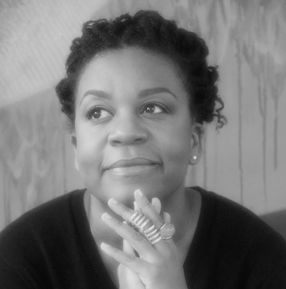My Mother and Lucille Clifton Have Tea
When I get to where I’m going
I want the death of my children explained to me.
—Lucille Clifton
They meet over tea and potato chips.
Brown and buttermilk women,
hipped and hardened,
legs uncrossed but proper
still in their smiles;
smiles that carry a sadness in faint creases.
A sadness they will never be without.
One asks the other,
“What do they call a woman who has lost a child?”
The other sighs between sips of lukewarm tea.
There is no name for us.
“No name? But there has to be a name for us.
We must have something to call ourselves.”
Surely, history by now and all the women
who carry their babies’ ghosts on their backs,
mothers who wake up screaming,
women wide awake in their nightmares,
mothers still expected to be mothers and human,
women who stand under hot showers weeping,
mothers who wish they could drown standing up,
women who can still smell them—hear them,
the scent and symphony of their children,
deep down in the good earth.
“Surely, history has not forgotten to name us?”
No woman wants to bear
whatever could be the name for this grief.
Even if she must bear the grief for all her days,
it would be far too painful to be called by that name.
“I’ve lost two, you know.”
Me too.
“I was angry at God, you know.”
Me too.
“I stopped praying but only for a little while,
and then I had no choice. I had to pray again.
I had to call out to something that was no longer there.
I had to believe God knew where it was.”
“I fear death no longer. It has taken everything.
But should I be? Should I be afraid of what death has taken?
That it took and left no name?”
The other who sighs between sips of lukewarm tea
leans over and kisses the cheek of the one still with questions.
She whispers …
No, you don’t have to be afraid.
Death is no more scary than the lives we have lived
without our babies, bound to this grief
with no name.
Copyright © 2019 by Parneshia Jones. Originally published in Poem-a-Day on August 22, 2019, by the Academy of American Poets.
“My older brother was killed by a hit and run driver in Chicago; a week after returning from his military duty in Iraq. Encompassed in my shock and grief as a sister/sibling, I also kept close watch of my mother’s grief—realizing neither one of us had a name to identify our loss. Lucille Clifton’s poems, and a long deep hug from her during my darkest hour, helped me write my grief. This will be a series of poems entitled, 1973: A Requiem.”
—Parneshia Jones

